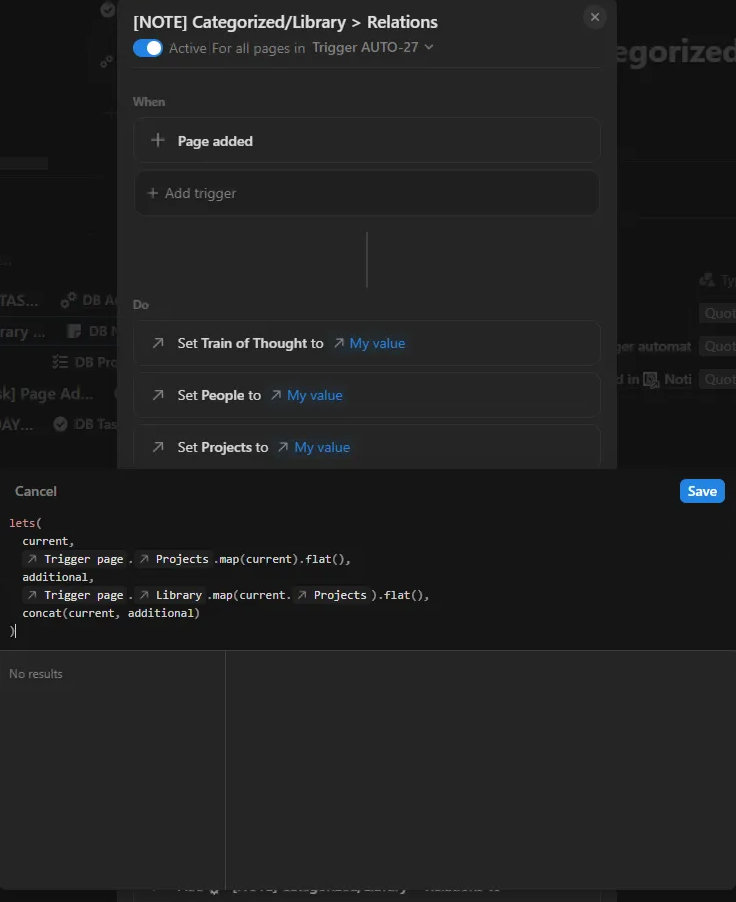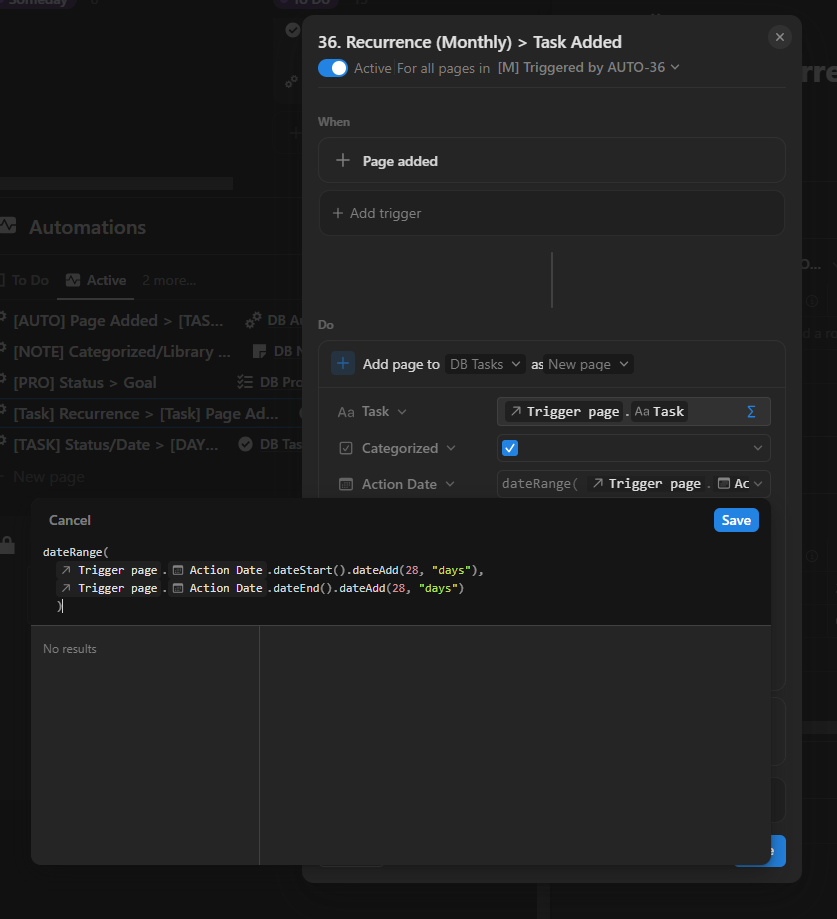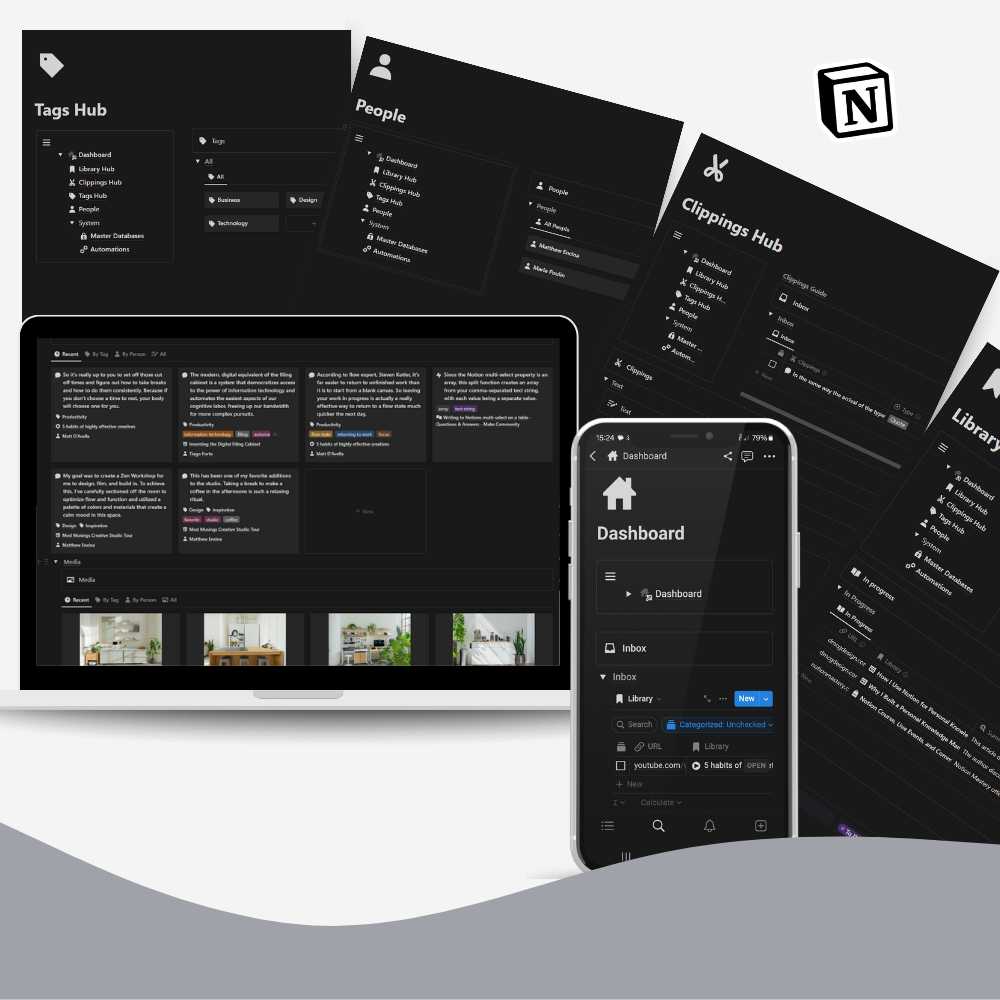Notion’s New Automation Improvements: Use Cases
Notion recently introduced some additional functionality to their automation feature, making it significantly more powerful. Where previously we had the options to great some relatively basic ‘if this than that’ type automations we now have the scope to do a lot more. The reason for this is the introduction of formulae and variables in automation actions. Notion also announced the option to send emails via automation, but formulae and variables is what’s most exciting here. I’ve created a couple of examples of how I’m using this new functionality in my workspace:
Mapping Relations from Library to Notes
For some context, in my knowledge management system, the Notes and Library databases have their own relations to other databases in my workspace. Like the People, Tags and Project databases for example. About 90% of the time these relations will be identical. The note will be attributed to the author of the article and the general theme will be similar, so they fall under the same tag. So why use 2 separate relations? You could use one relation and simply create a rollup for the other database. Problem solved. That’s true, except for the 10%. The 10% of the time where you want to attribute a quote to someone else. The guest on the podcast - not the host. Or, the 10% of the time where the note inspires an idea for a completed unrelated project to the one you were researching. Maybe you want to attribute a quote to the book’s character who spoke it, and not the author. That 10% is a real pain. It more than doubles the amount of time that it takes to process clippings and library items because there’s separate relations.
I previously handled this automation in a third party automation tool; Make which I explained here; Automating Notion Relations with Make.com but I can now handle it directly in Notion.
I control the trigger for my database options by using a linked database view. I set up a linked database view that filters for uncategoirzed notes, that have a library relation. Under Do, I click Add Action, Edit Property and select a relation property I want to map. I choose the Projects relation and add the following custom formula:
Trigger Page.library.map(current.Projects)
This seems to work great. It takes whatever projects the library resource is related to and applies that relation to the note. However, what if this note was already related to another previous project? This automation would overwrite that and only the library related project would appear here. I updated the formula to capture the projects related to the library and the projects already related to the note and then relate this updated list to the note.
lets(
current,
Trigger Page.Projects.map(current).flat(),
additional,
Trigger Page.Library.map(current.Projects).flat(),
concat(current, additional)
)
You can repeat these steps for each relation property you want to update.
Recurring Tasks
Some examples of a recurring tasks I’ve seen in Notion involve changing the date of the same task when it’s been completed to a new date in the future. This approach never worked for me as I wanted to be able to keep track of how many of a type of task had been completed over a period of time. It’s now a pretty straightforward automation to add a new task when the previous task has been completed.
I set up a linked database view that filters for tasks that have been completed (status = done) and have a recurrence of monthly (select property = monthly). Under Do, I click Add Action, Add Page to, select my task database and map the properties needed. The mains to map are the name and the date. For the name you can simply do: Trigger Page.name (or whatever the name/title) property is called. For the date you can do the following: Trigger Page.YourDateProperty.dateAdd(28, “days”). This will create a new task with the same, scheduled 28 days after the previous task is completed. You can create different automation for different recurrences and adjust the days added accordingly.
However, I generally schedule my task for a specific time during the day so it blocks out a slot in my calendar. Ideally I would like the recurrence of my task to block out the same period of time, x days later. To do that you can tweak the formula to do the following:
dateRange(
Trigger Page.YouDateProperty.dateStart().dateAdd(x, “days”),
Trigger Page.YouDateProperty.dateEnd().dateAdd(x, “days”),
)
This will add a new task at x interval, keeping the same start and end time.
Improvements UI
One limitation of Notion automation currently is how we interact with them. Opening a widget at the side of a database is useful but it lacks sorts and filters. This is fine when working with a couple of automations but when you are adding a lot to each database it becomes a little messy.
The centre peek view when editing automations is a nice improvement. One addition I would love to see here is the ability to be able to save an automation if it’s incomplete. Since we now have the option to add complex formulas to our triggers, I find myself sometimes wanting to click away from the automation before it’s complete to check something. Or, to come back to it later if I’ve hit a stumbling block. Being able to save incomplete automation as paused would be a nice addition
Automation Visibility
Automations are managed within the trigger database which makes sense. However when an automation updated pages in another database, there’s no visibility on where that update is coming from.
There’s no easy way to view what automatons are affecting any given database since the trigger could be any other database in your workspace. You can use a Last Edited By property and see that the automation was updated by Notion but it’s difficult to get much further than that. If you’re working with a lot of interconnected databases this could definitely get confusing. I’m currently using an automations database to keep track of what’s been updated by what automation across my workspace which works well, but it would be great to get this visibility built-in to automations directly.
Overall this is a great new addition to Notion and I’m excited to add automate additional tasks in my workspace.
See the templates mentioned in this post:



